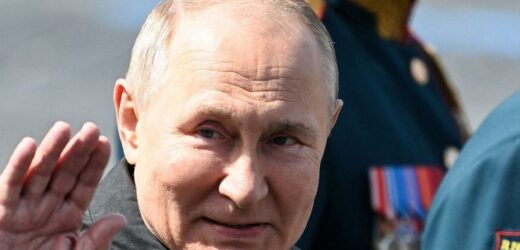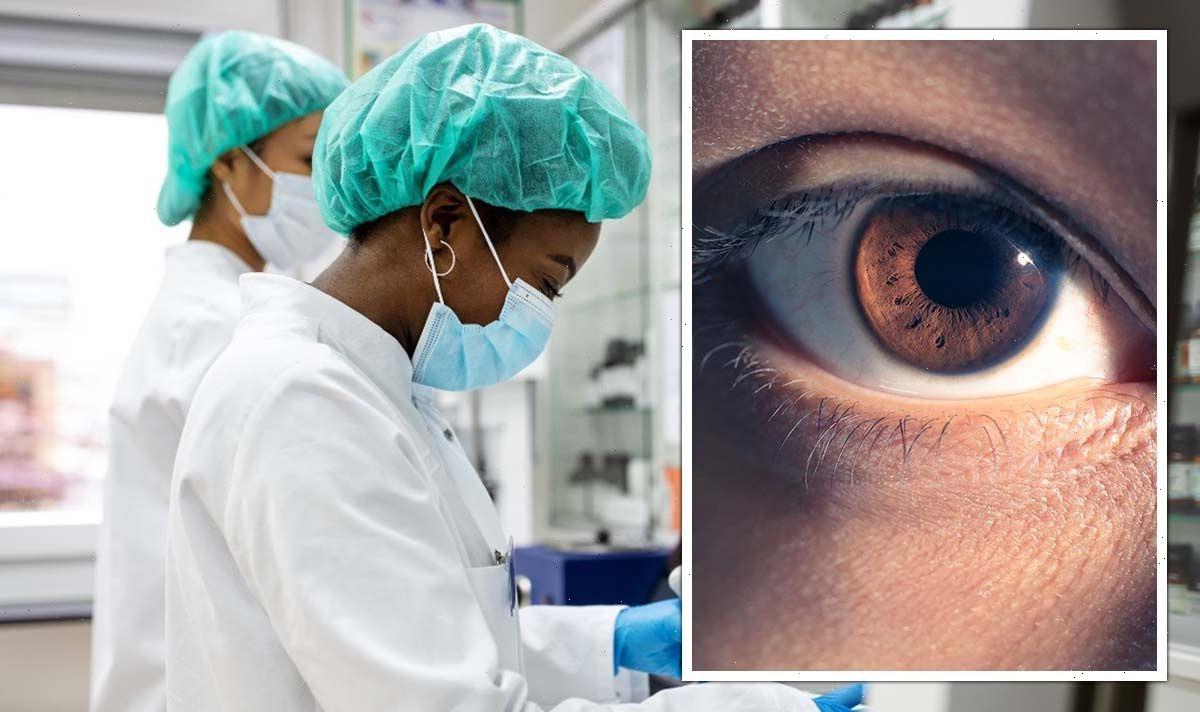Russia: Putin 'not about to retreat' says newspaper article
We use your sign-up to provide content in ways you’ve consented to and to improve our understanding of you. This may include adverts from us and 3rd parties based on our understanding. You can unsubscribe at any time. More info
A top US official has claimed that Russian weapons have been found with semiconductors usually seen in dishwashers and fridges. It comes as harsh sanctions have seen exports to Russia plummet as the West cuts the country off over its brutal invasion of Ukraine. US Commerce Secretary Gina Raimondo said: “We have reports from Ukrainians that when they find Russian military equipment on the ground, it’s filled with semiconductors that they took out of dishwashers and refrigerators.”
She added that two Russian tank factories have also had to shut down because of a lack of components.
It comes after the US slapped a ban on selling high-tech products such as semiconductors used by the defence, aerospace and maritime industries to Russia just days after it invaded Ukraine in mid-February.
The aim was likely an attempt to deal a blow to the Russian military by denying it access to this sensitive technology.
And the latest reports suggest the move has worked.
In fact, technology experts have noted that exports to Russia have been slashed by nearly 70 percent since mid-February.


And the US is not the only country punishing Russia, with almost 30 western nations taking similar action.
The US and several European countries had already placed restrictions on the sale of computer chips to Russia over the annexation of Crimea back in 2014.
But in the East too, important chip manufacturers have dealt a blow to Russia’s military.
South Korea, Taiwan, and Japan which are key players in the chip market, have all banned exports of the items the US put on its export-control list.
This has denied Russia access to crucial top-end chips and materials, as well as the components it needs to create these items domestically.

Tom Rafferty, Asia regional director at the Economist Intelligence Unit, said in March: “The big export bans are going to be on semiconductors and high-end semiconductors in particular, for which Korea and Taiwan almost monopolize production. So there won’t be supply of that anywhere that Russia can lean on.”
While Russia is heavily reliant on imports for these semiconductors, there is one country which could still be willing to help out.
China, which has yet to condemn Moscow for invading Ukraine, is by far the biggest supplier of semiconductors to Russia.
And following the ban in March, Chinese Foreign Ministry spokesperson Wang Wenbin said China remained opposed to the sanctions and would “continue to carry out normal trade co-operation” with the Kremlin.
But now, several large Chinese tech companies are reportedly reducing shipments in Russia, according to people familiar with the matter.
DON’T MISS
Xi turns on Putin: Green energy production set to soar [REPORT]
Ukraine humiliates EU and CUTS flow of Putin’s energy [REVEAL]
UK in huge EV boost as new lithium factory to SLASH China reliance [INSIGHT]


These include PC giant Lenovo Group Ltd and smartphone and gadget manufacturer Xiaomi Corp.
But these companies are yet to publicly announce these business decisions, likely due to Beijing’s opposition to the Western sanctions.
There has also been a global semiconductor shortage as a result of supply chain disruptions sparked by the pandemic.
These shortages have also reportedly made it harder for US defence contractors to supply weapons to Ukraine, Ms Raimondo said last month.
She told the Senate: “I talked to all the national defence contractors recently, who are working overtime in the Ukraine replenishment issue and their biggest pain point is chips.
“There are 250 chips or more in every Javelin [missile] launching system.”
Source: Read Full Article


